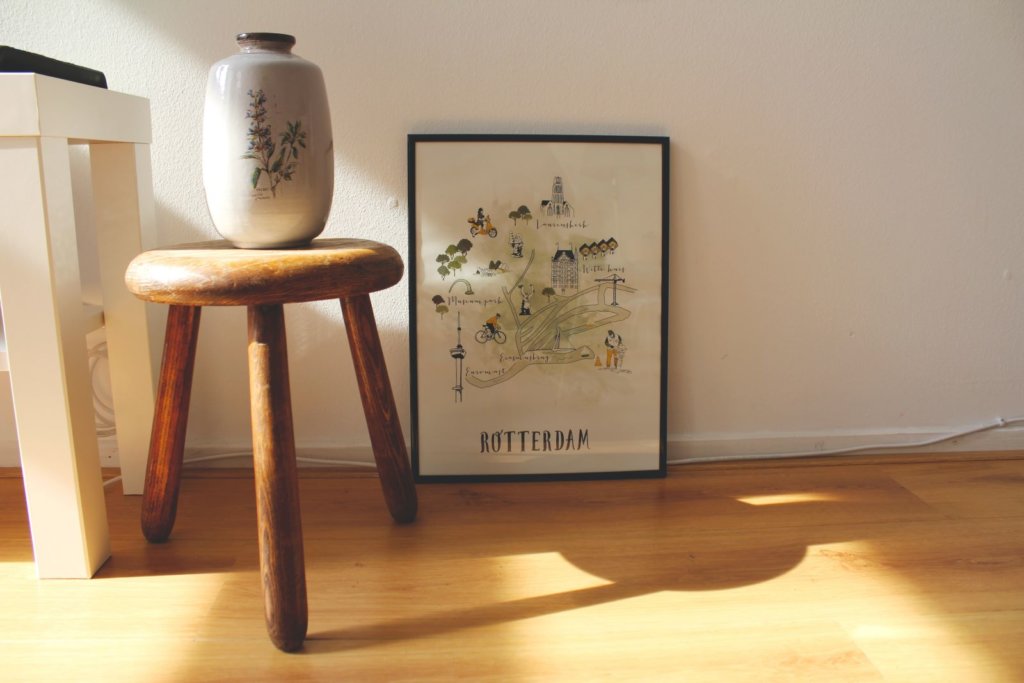Whenever I share about my upcoming Australia trip, people are genuinely happy for me. I’m taken aback because sharing good news, especially over social media, seems perilous these days. A year or so ago, Glennon Doyle shared a video of her singing on a boat with her friends and family. The next day, she had the single-largest drop in followers her entire time on Instagram. She posited it’s because there’s something triggering about seeing women, especially, happy. That perhaps we’re more comfortable with their pain and suffering.
More recently in October, Daisey Miller shared a tweet that said, “my husband and i wake up every morning and bring our coffee out to our garden and sit and talk for hours. every morning. it never gets old & we never run out of things to talk [about]. love him so much.” Some responses were positive but many were scathing and called her out for being privileged and presumably wealthy. There was an assumption Miller didn’t work and had minimal responsibilities.

Happiness increases when it’s shared. Photo by Catalin Pop on Unsplash
In other words, instead of celebrating Miller’s quality time with her husband, people tore her down and mocked her. Numerous people tweeted their own versions: “my husband and i wake up every morning and go out to our garden and swordfight for hours. every morning. it never gets old & we never run out of ways to duel and spar. love him so much,” or “my husband and i wake up every morning and go out to our garden and we kill each other with our bare hands because we are miserable and we both have crabs.”
Those that didn’t mock her showcased self-righteousness, which is the conviction that one’s beliefs and behaviors are the most correct. As John Mark Green puts it, “The self-righteous scream judgments against others to hide the noise of skeletons dancing in their own closets.” Twitter is rife with self-righteousness and a hotbed of schadenfreude, a compound of the German words schaden, harm, and freude, joy. It means deriving pleasure or joy from someone else’s suffering or misfortune.
Brené Brown writes in her book Atlas of the Heart that schadenfreude is “seductive. Especially when we’re sucked into groupthink. It’s easy to build counterfeit connection with collective schadenfreude. I say ‘counterfeit’ because when we see someone who we don’t like, we disagree with, or is outside our group stumble, fall, or fail, it’s tempting to celebrate that suffering together and to stir up collective emotion.”
I mean, I get it. I’ve felt schadenfreude from time to time. But that doesn’t mean schadenfreude has to dominate your life. The antidote to schadenfreude is freudenfreude, a word made up by an American psychologist that literally translates as “joy joy.” It’s letting yourself feel vicarious joy for others. When we share our joy, our joy increases. The Buddha stated this well when he said, “Thousands of candles can be lighted from a single candle. Happiness never decreases by being shared.”
I have to remind myself of that because I worry by sharing my good news people will judge me, one-up me, or try to tear me down. Thus far they haven’t, probably because I’m not famous and I don’t surround myself with jerks. It could also be that I engage in freudenfreude regularly. I really and truly celebrate when others celebrate. Seeing their joy brings me joy and perhaps that’s why it’s coming back to me. Together, we are multiplying happiness.
I dream of a world where we celebrate each other’s wins. A world where we practice freudenfreude more than its opposite. A world where we remember happiness doesn’t decrease when it’s shared, instead it’s multiplied.
Another world is not only possible, it’s probable.
Lately, I’m noticing how much I catastrophize. Catastrophizing is assuming that the worst will happen. It can also be believing you’re in a worse situation than you really are or exaggerating the difficulties you face. For me, it’s the former, assuming the worst will happen. I don’t catastrophize every situation. The ones that I feel are within my control I’m optimistic about. For instance, I’m not someone who says, “I’ll miss my flight!” because I know I leave plenty of time to get to the airport.
My catastrophizing is along the lines of “My plants are going to die while I’m in Australia!” I’m setting up a water-wick system for my indoor plants but nonetheless, I’m pretty convinced it will fail. And the idea of asking someone to water them also brings catastrophizing, “What if they forget and my plants would have been better off with the water-wicking system?!?”

Maybe my plants will be fine! Photo by Katya Ross on Unsplash
As you can see, it’s loads of fun over here in my brain. A solution I keep circling is: “Give equal air time to things working out.” I care deeply about fairness so hearing it phrased that way helps me. I say to myself, “You’re not being fair and equal by only focusing on the negative. What if you devoted the same amount of time to things working out? What if your plants are healthy and thriving when you get back?”
Even asking those questions causes my brain to short-circuit a little because honestly, I hadn’t considered that possibility. What if everything works out? It’s true. Everything could work out. It’s just as likely my plants will be alive when I come back instead of dead. Why not focus on the positive outcome?
The brain is a muscle that needs training like the other muscles. I have to train myself to be optimistic and it’s something my spiritual teacher encourages when he says, “Human beings must not be pessimists under any circumstances. I am an incorrigible optimist, for I know that optimism is the very essence of life.”
That statement is backed up by science in the sense that optimists live longer, the Washington Post found. Optimists lived into their 90s versus the average life span of 83. And the results remained even after accounting for other factors known to predict a long life such as education level, economic status, ethnicity, and whether a person had depression or chronic health conditions.
Yes, it’s easier to default to the negative because after all, we humans are prone to a negativity bias, but why not at least give the positive equal air time? It’s only fair and could help me live longer to boot.
I dream of a world where we allow ourselves to catastrophize as well as positively visualize the future. A world where we remember positive and negative outcomes are both likely. A world where we train our minds to be optimistic. A world where we give equal airtime to the positive.
Another world is not only possible, it’s probable.
I feel contracted about money right now because the situation with one of my highest-paying clients is in flux. Not only that, I’m spending a lot of money all at once for this upcoming Australia trip. I didn’t know what I was signing myself up for, honestly, because I booked the ticket semi-impulsively. My response is wanting to hoard money like a dragon sitting on her riches. “Amass all the wealth! Spend none of it!” In other words, it’s a good time to remind myself of a concept I learned almost exactly three years ago: “It’s not your money.”
We’ve been socially conditioned to believe it’s our money, our house, our bodies, our whatever, but nothing is truly “ours” in a permanent way. We’re caretakers for right now and that’s it. If the concept doesn’t resonate with you, that’s fine, but I find it helpful to remember everything belongs to the divine beloved because it helps me feel more relaxed.
Whenever I think something is “mine,” I start grasping, controlling, and getting overwhelmed. If I think money is mine, I start freaking out when I spend it, want to stockpile it when I receive it, and worry about how to get more. I start wondering if I spent too much on the plane ticket, if I chose the wrong hotel, and maybe I should cancel this once-in-a-lifetime experience to stay home instead. It’s not fun and it’s also no way to live. Life is about giving and receiving. Not only receiving.

This isn’t ours. Photo by Jason Leung on Unsplash
The solution to the fear I’m feeling comes down to faith. Faith is not rational, scientific, or evidence-based. Faith is the opposite of all those things. It’s belief without proof. That’s not just my definition; the dictionary defines faith in the same way. That means I have to actively, consciously, choose to believe I’ll be OK financially speaking. That money will continue to flow in and out of my life and furthermore, it’s not mine to control anyway.
I’m reminded of a Sanskrit phrase for meditation, Iishvara prańidhána, or seeking shelter in the Supreme. My spiritual teacher says, “Iishvara prańidhána also implies implicit faith in [the divine] irrespective of whether one lives in momentary happiness or sorrow, prosperity or adversity.”
Essentially, that means letting your life belong to love, to quote Tosha Silver, the author of the book It’s Not Your Money. It means letting go of control and recognizing there is a divine presence here, at this moment, in every moment. It means remembering a loving force moves through me and you. Furthermore, I can consciously invite that loving force into my life. It means saying, “Hey God/higher power/universe, I want you to take care of this. Please guide my actions. I trust where you are leading me,” and then letting go, knowing whatever needs to come, comes, and whatever needs to go, goes.
It’s not easy by any means but neither is the alternative. I’d rather feel happy, joyous, and free than sad, depressed, and imprisoned. For me, that means trusting and surrendering.
I dream of a world where we remember nothing in this universe is truly “ours.” A world where we recognize there is a power and presence that’s in charge. A world where we put our trust in something greater than ourselves. A world where we’re able to surrender and let go of our micromanaging tendencies and fully trust all true needs will be met, and often in amazing and wonderful ways. A world where we understand it’s not our money.
Another world is not only possible, it’s probable.
The new year is typically when many people start to set resolutions of how they want this year to be. They want to change an aspect of their life or behavior. Resolutions abound such as: “I want to lose weight,” or “I want to make more money.” But how do those things actually happen? How can we make a change stick? After all, most people abandon their resolutions by February, and sometimes even earlier, so it’s clear that merely setting the intention isn’t enough.
My friend introduced me to a concept that’s blowing my mind a little called the Triad of Change. Think of the triad as a three-legged stool consisting of structure, behavior, and perception. You need all three for change to happen, but for the change to be long-lasting and sustainable, you have to start with the leg of the stool that’s most enlivening for you and end with the most draining part, otherwise, you’re sure to fail.

I like this picture because it captures both a stool and a feeling of movement with the poster in the background. Photo by John Boatile on Unsplash
Structure is the “where and how.” It’s budgets, plans, routines, etc. If you get excited by diving deep into the small details of life, start any change with structure.
Behavior is the “what.” It’s actions, activities, performance, etc. If it thrills you to just get out there and do something, start with behavior.
Perception is the “why.” It’s feelings, vision, purpose, meaning, etc. If you become animated thinking about how you want to feel, what you want to experience, or the big picture, start any change or decision with perception.
The triad of change is hugely relevant in my life right now because I notice I keep starting with my drain: structure. For instance, I’m flying to Australia soon, which is super exciting because the country has been on my bucket list for a long time. But instead of celebrating, I feel stressed and overwhelmed with all the details. “Should I book this Airbnb? What about that one? Would it be better for me to fly at this time or at this time? When should I plan the side trip to the Great Barrier Reef? Can I fit in a visit to Uluru?”
For some people, thinking about those details is enlivening. They clap their hands in glee wading through various Airbnb options. I am not one of those people. Making decisions from a place that’s invigorating for me, perception, means asking myself, “What do I want to experience?” and then going from there. I want to experience comfort so that means booking an Airbnb with air-conditioning. I also want to experience ease, and for me, that means being close to things, not in party central, but also not in the boonies. With that in mind, I found an Airbnb that meets my needs. I didn’t wade through 1,000+ listings or focus only on finding the cheapest place. I set myself up for success by honing in on what matters to me.
The Triad of Change concept is simple yet complex. I’ve found most of the literature about it online is esoteric, all of which is to say if you don’t understand what I’m talking about, you’re not the only one! You can message me if you want to talk about it in depth, but for the purposes of this post, it’s enough to ask yourself, “Which of the legs energizes me? What inspires me?” and then start from that place. You know what to end with by asking yourself, “Which of the legs drains me? What would I rather put off or outsource to someone else?”
Thus far this process is making my life easier and I have that wish for you too. Life is too short to feel drained all the time. Why not feel enlivened instead?
I dream of a world where we understand how to make a change stick. A world where we recognize the mechanisms that work for other people may not work for us. A world where we understand change doesn’t have to be hard or grueling, it can be easy and joyful. A world where we operate from a place that lights us up and we let that energy carry us through our days.
Another world is not only possible, it’s probable.
As we enter this new year, I keep thinking about envy. Not the way I normally do in that my chest burns with the emotion, aching to have what someone else does. Instead, I’m thinking about something my former therapist told me, “Someone out there envies you.”
When he first said that to me, I balked. “What?!? My platonic relationships are great, but don’t most people think that? Who complains that their friends are awful? Other than those relationships, how could anyone possibly envy me? I’m not wildly successful, I don’t have a boatload of money, I’m single, and I don’t even live in a large apartment! What is there to envy?!?”
The reason I said that is I was doing exactly what neuroscientists recommend you don’t do to feel happy – comparing up, or in other words, comparing yourself to people who are better off than you are. How did researchers come to this conclusion about comparing up and down? They studied a cohort that’s rife with competition and comparison: Olympic medalists. One study of the 1992 Summer Olympics found bronze medalists tend to be happier than silver medalists because bronze medalists think about how close they were to finishing without a medal at all. However, the silver medalists think about how close they were to winning the gold.

I tried to capture an image that was green with envy. Here’s what I landed on. Photo by Runze Shi on Unsplash
The researchers didn’t just ask people how they felt after the fact, they studied facial expressions and we saw real-time evidence of this disappointment with McKayla Maroney and her now-famous pout. In 2012, she was a crowd-favorite gymnast, expected to win the gold for her individual event. Instead, she made a mistake that caused her to miss the gold medal by one-hundredth of a point. She won the silver and disappointment was written all over her face.
It makes sense of course, but thinking this way, of what could have been and isn’t, what you missed out on, etc. is deadly, literally. Another study found silver medalists’ life expectancy is less than that of gold and bronze medalists and it’s posited this is due to the perceived dissatisfactory competition outcomes. These medalists were so upset about missing the gold, their lives became shorter. Yikes. So what’s the solution here? Compare down, and also maybe broaden your perspective.
I received a dose of perspective a few days ago. A woman whose career I’ve envied for a while isn’t doing so great personally. She got divorced and moved out of the home she bought with her spouse. When I heard the news, I felt pity. Instead of wishing I had this woman’s life, I felt grateful that I don’t. Yeah, her career success would be great, but I don’t want to experience what she does. Furthermore, to bring it back to my earlier comment, my relationships are healthy and fulfilling. I take it for granted that I love and am loved, but not everyone experiences that. In other words, I’m feeling the contentment my spiritual teacher advocates.
He says santośa, or contentment, means a state of proper ease. “Contentment is not at all possible if the individual is running after carnal pleasures like a beast. As a result of extroversial analysis, the objects of enjoyment go on increasing both in number and abstraction and that is why one’s mental flow never gets any rest. Under such circumstances how can one attain perfect peace of mind?”
They can’t, which is why contentment is so crucial. Santośa is not about being satisfied with the crumbs of life. It’s not appropriate to tell someone who is near-starved to be grateful for eating every three days. Everyone has a right to a full and respectful life, and at the same time, there’s something to remembering what we do have and realizing someone out there envies us.
I dream of a world where we spend more time practicing gratitude for what we do have instead of lamenting what we don’t. A world where we recognize if we saw the inner workings of other people’s lives, we wouldn’t want to trade places with them. A world where we practice contentment and compare ourselves to people who have less than us, not more.
Another world is not only possible, it’s probable.